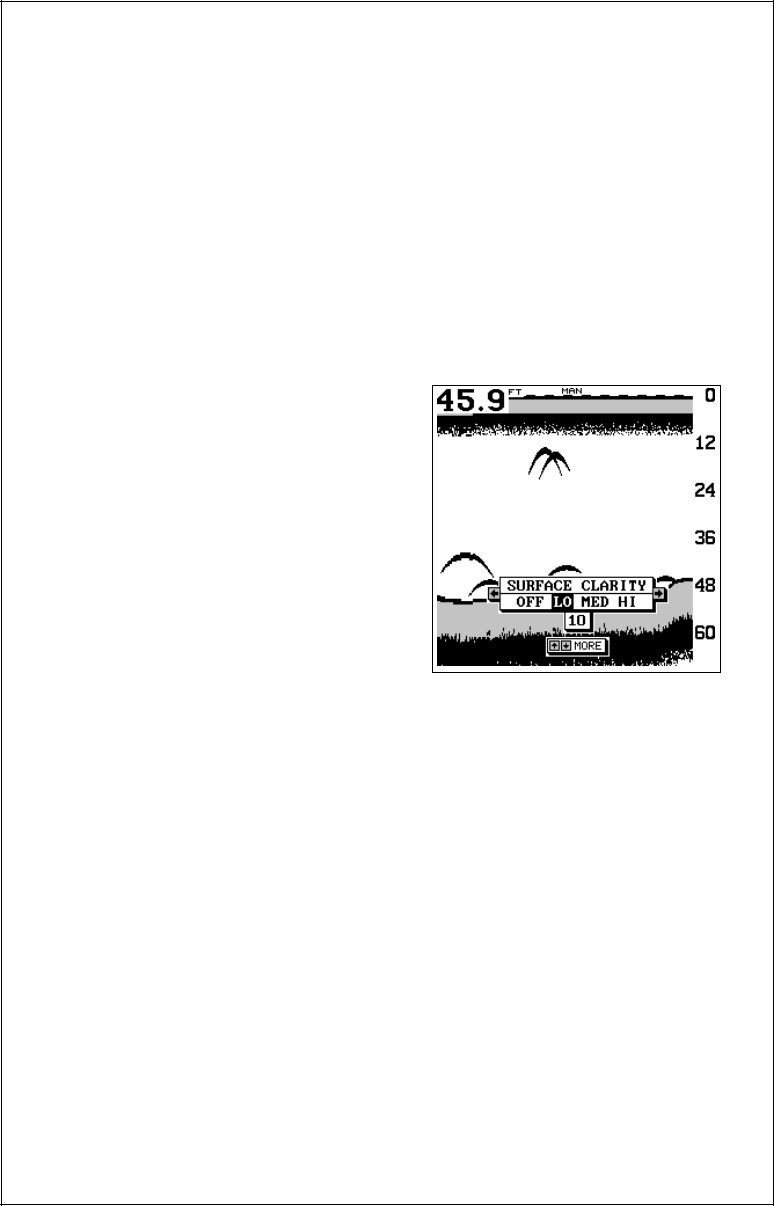
20
alarm on, press the ALARM key, then highlight the "Fish Alarm" label and
press the right arrow key. The unit will revert to the sonar display with the
fish alarm turned on. Repeat the above steps to turn the fish alarm off.
Note: If the unit is in the manual mode, turning the Fish Alarm on will also
turn the automatic mode and Fish ID on, also.
ADJUST CHART SURFACE CLARITY
The markings extending downward from the zero line on the chart are
called “surface clutter.” These markings are caused by wave action, boat
wakes, temperature inversion, and other natural causes.
The Surface Clarity Control (SCC) re-
duces or eliminates surface clutter sig-
nals from the display. SCC varies the
sensitivity of the receiver, decreasing
it near the surface and gradually in-
creasing it as the depth increases.
The maximum depth that SCC will
affect is 75% of the selected depth
range. For example, on a 0-60 foot
range with maximum SCC, surface
clutter will be reduced down to 45 feet.
There are three levels of SCC avail-
able on the Accura 240: low, medium,
and high. When it’s turned on for the first time, the SCC level is low. To
change it, press the MENU key, then press the up or down arrow keys until
the "Surface Clarity" menu appears. Now use the left or right arrow keys
to change it. When you're finished, press the EXIT key to erase the SCC
menu.
ASP (Advanced Signal Processing)
The ASP feature is a noise rejection system built into the Accura 240 that
constantly evaluates the effects of boat speed, water conditions, and
interference. This automatic feature gives you the best display possible
under most conditions.
The ASP feature is an effective tool in combating noise. In sonar terms,
noise is any undesired signal. It is caused by electrical and mechanical
sources such as bilge pumps, engine ignition systems and wiring, air
bubbles passing over the face of the transducer, even vibration from the
engine. In all cases, noise can produce unwanted marks on the display.


















